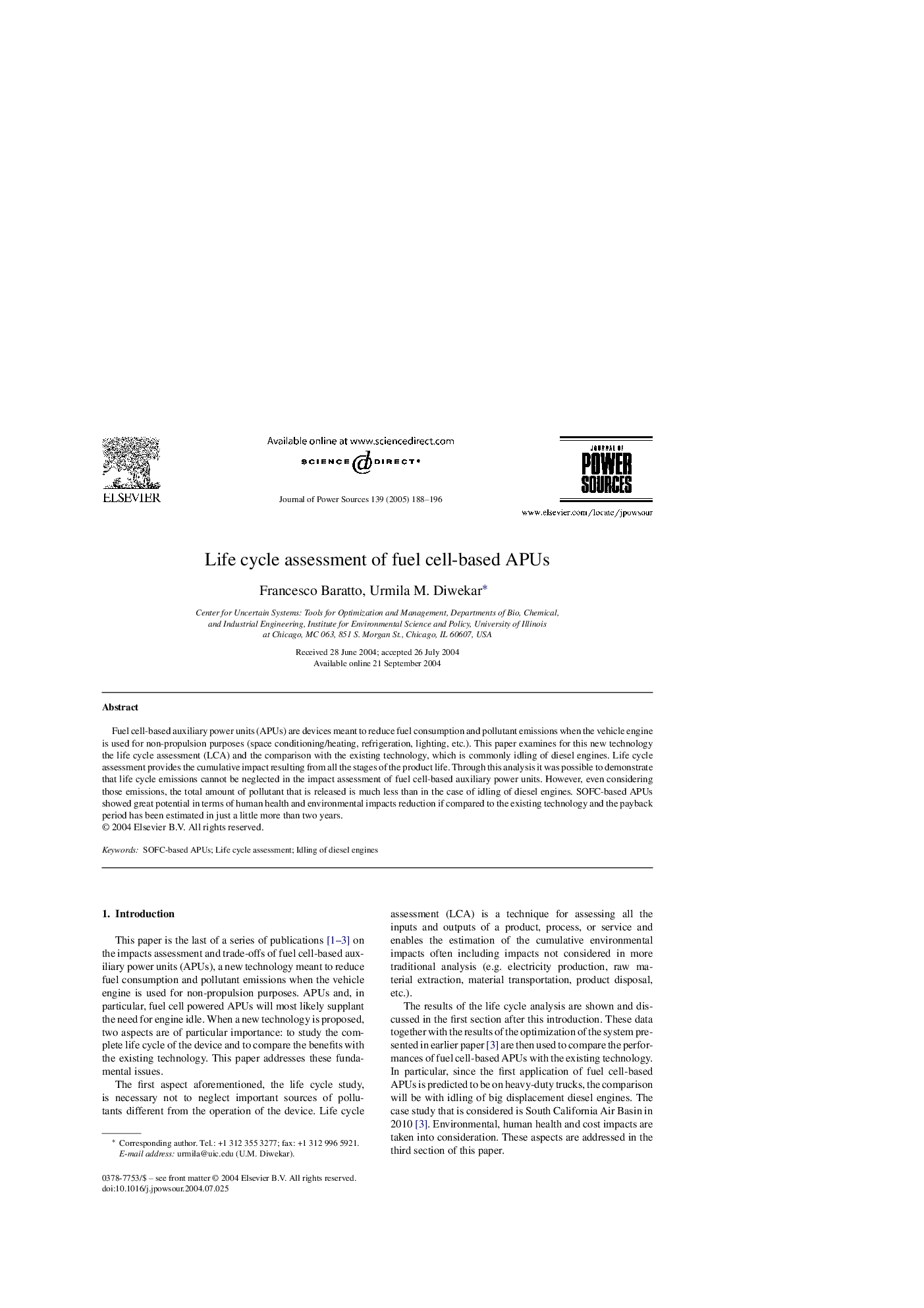| Article ID | Journal | Published Year | Pages | File Type |
|---|---|---|---|---|
| 9760514 | Journal of Power Sources | 2005 | 9 Pages |
Abstract
Fuel cell-based auxiliary power units (APUs) are devices meant to reduce fuel consumption and pollutant emissions when the vehicle engine is used for non-propulsion purposes (space conditioning/heating, refrigeration, lighting, etc.). This paper examines for this new technology the life cycle assessment (LCA) and the comparison with the existing technology, which is commonly idling of diesel engines. Life cycle assessment provides the cumulative impact resulting from all the stages of the product life. Through this analysis it was possible to demonstrate that life cycle emissions cannot be neglected in the impact assessment of fuel cell-based auxiliary power units. However, even considering those emissions, the total amount of pollutant that is released is much less than in the case of idling of diesel engines. SOFC-based APUs showed great potential in terms of human health and environmental impacts reduction if compared to the existing technology and the payback period has been estimated in just a little more than two years.
Keywords
Related Topics
Physical Sciences and Engineering
Chemistry
Electrochemistry
Authors
Francesco Baratto, Urmila M. Diwekar,
